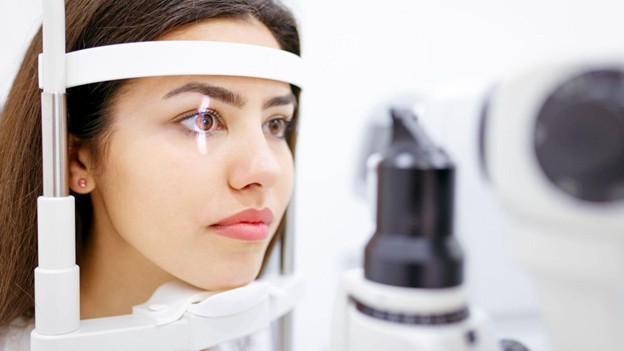views

Eye health is essential to maintaining a good quality of life. Vision problems can develop subtly, often without noticeable symptoms. By the time you realise there is an issue, the condition may have progressed, requiring more complex treatments. This is why regular eye exams are crucial. They help detect potential problems early, safeguard your vision, and provide you with peace of mind.
Why Eye Exams Are Essential
Eye exams are more than just checking how well you can see. During a comprehensive eye exam, an optometrist can identify various eye conditions such as glaucoma, cataracts, and macular degeneration. These conditions often develop without clear warning signs, making regular check-ups critical for early detection.
By diagnosing these problems early, treatment can start immediately, potentially preventing further deterioration of vision. Additionally, an eye exam can reveal underlying health conditions like diabetes and high blood pressure. The eyes are often indicators of broader health issues, making routine exams valuable not just for your eyes, but your overall well-being.
When Should You Get an Eye Exam?
The frequency of eye exams depends on several factors, including age, health status, and whether you wear glasses or contact lenses. Generally, it is recommended that adults have an eye exam every two years. However, children, elderly individuals, and those with existing eye conditions or a family history of eye disease may need more frequent check-ups.
Young children should have their first eye exam at around six months old. Their vision continues to develop rapidly, and early detection of issues like lazy eyes or misaligned eyes can significantly impact their visual development. For older adults, regular eye exams can help manage age-related eye conditions such as presbyopia and cataracts, ensuring that any decline in vision is managed promptly.
What Happens During an Eye Exam at an Eye Clinic?
When you visit an eye clinic for a routine exam, the optometrist will conduct a series of tests to assess your vision and the health of your eyes. These tests include measuring your visual acuity, checking your eye pressure, and examining the internal structures of your eyes.
The optometrist may use a variety of tools, such as a slit lamp or ophthalmoscope, to get a detailed look at your eyes. If necessary, they may dilate your pupils to examine the retina and optic nerve more thoroughly. This comprehensive approach allows for early detection of conditions that could impair your vision.
If the eye clinic has a behavioural optometrist on staff, they may also assess how your eyes work together and how they function in daily activities, especially for children. This type of evaluation is vital for identifying issues related to focus, eye coordination, and visual processing.
The Risks of Skipping Regular Eye Exams
Neglecting regular eye exams can lead to severe consequences for your vision. Many eye conditions, such as glaucoma and diabetic retinopathy, have no early symptoms. By the time you notice a problem, it could be too late to reverse the damage.
For those who already wear corrective lenses, regular exams are even more important. Your prescription may change over time, and wearing the wrong prescription can cause eyestrain, headaches, and further deterioration of vision. Routine eye exams ensure that your prescription is up-to-date and that your eyes are healthy.
Children are particularly vulnerable if they do not receive regular eye check-ups. Poor vision can affect their learning and development, leading to issues in school performance. Identifying and correcting vision problems early in life is essential to support their growth and education.
How Regular Eye Exams Benefit Different Age Groups
Children and Teenagers
Regular eye exams for children and teenagers are crucial as their eyes are still developing. Issues like nearsightedness, farsightedness, and astigmatism can be detected early and corrected with glasses or contact lenses. Additionally, behavioural optometrists can assess any visual processing issues that may impact their learning.
Adults
For adults, regular eye exams are vital for monitoring changes in vision and detecting eye conditions that could lead to vision loss. This is particularly important for those who spend long hours in front of screens, as digital eye strain can contribute to visual discomfort and headaches. Routine exams can identify any issues early and provide solutions, such as computer glasses, to reduce strain.
Seniors
As we age, the risk of developing eye conditions like cataracts, glaucoma, and macular degeneration increases. Regular eye exams for seniors help to manage these conditions, ensuring timely intervention to preserve vision. Identifying changes in the eye's health early can make treatments more effective, potentially slowing the progression of age-related vision loss.
Choosing the Right Eye Clinic for Your Needs
Finding a Barossa eye clinic that suits your specific needs is important. When selecting a clinic, consider the range of services they provide, the qualifications of their optometrists, and whether they have the latest diagnostic equipment.
For children, an eye clinic that offers behavioural optometry can be particularly beneficial. These specialists focus not only on the health of the eyes but also on how they function in everyday activities. This holistic approach can be invaluable in identifying and managing issues related to vision development, learning, and coordination.
What to Expect After an Eye Exam
After an eye exam, your optometrist will discuss their findings and recommend any necessary treatments or follow-up appointments. If you need corrective lenses, they will provide you with a prescription for glasses or contact lenses. They may also offer advice on lifestyle changes, such as taking breaks from screen time or wearing sunglasses to protect against UV rays.
In some cases, the optometrist might refer you to a specialist if they detect a more complex issue that requires further investigation or treatment. This could include conditions like cataracts, retinal disorders, or glaucoma, which may require advanced care.
Protecting Your Vision Between Eye Exams
In addition to regular eye exams, you can take several steps to protect your vision daily. Here are some tips:
● Wear Sunglasses: Protect your eyes from UV rays by wearing sunglasses whenever you are outdoors. Prolonged exposure to sunlight can increase the risk of cataracts and other eye conditions.
● Limit Screen Time: Staring at screens for extended periods can lead to digital eye strain. Follow the 20-20-20 rule: every 20 minutes, take a 20-second break to look at something 20 feet away.
● Eat a Healthy Diet: Foods rich in vitamins A, C, E, and omega-3 fatty acids can support eye health. Include leafy greens, fish, nuts, and citrus fruits in your diet.
● Quit Smoking: Smoking increases the risk of developing eye conditions like macular degeneration and cataracts. Quitting smoking can have long-term benefits for your eye health.
● Use Protective Eyewear: When engaging in activities that could cause eye injury, such as sports or home improvement projects, always wear protective eyewear to safeguard your eyes.
Conclusion
Regular eye exams are a simple yet effective way to protect your vision. By visiting an eye clinic, for routine check-ups, you can detect potential problems early and take steps to maintain your eye health. Whether you are a child, adult, or senior, eye exams are vital for preserving clear and comfortable vision throughout life. Don’t wait until you notice symptoms; make regular eye exams a part of your healthcare routine. Your eyes are worth it.






















Comments
0 comment